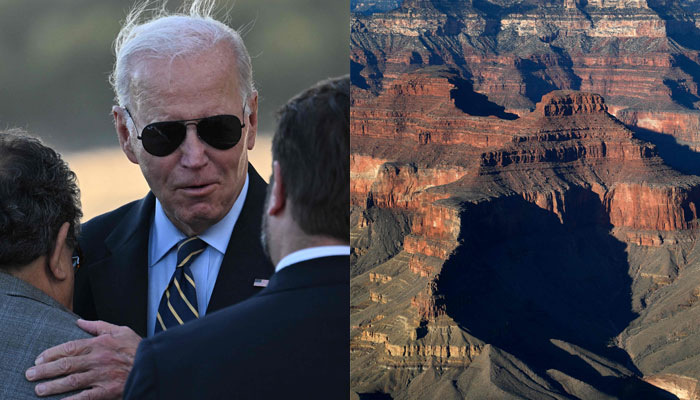Biden honours native tribes with Grand Canyon monument designation
August 09, 2023

TUSAYAN: US President Joe Biden is set to declare a national monument designation for the expansive Grand Canyon region during his visit to Arizona on Tuesday, culminating years of efforts by Native American tribes and environmental advocates to preserve the landscape.
The anticipated declaration will encompass approximately 1,562 square miles (4,046 square kilometres) of land adjacent to the Grand Canyon National Park. This marks the fifth monument designation by President Biden, underlining his commitment to conservation and the environment.
The monument, named "Baaj Nwaavjo I’tah Kukveni" in homage to the Havasupai and Hopi tribes, carries profound significance. "Baaj Nwaavjo" translates to "where tribes roam," reflecting the Havasupai people's connection to the land, while "I’tah Kukveni" signifies "our footprints," symbolising the ancestral ties of the Hopi tribe.
Beyond its political dimensions, the monument designation underscores a new era of collaboration and partnership with indigenous communities, as highlighted by US Interior Secretary Deb Haaland, the first Native American cabinet secretary.
President Biden's decision also resonates politically, as Arizona remains a pivotal battleground state. His victory in the state in 2020 marked a significant turning point, and securing Arizona again could be pivotal for his reelection prospects in 2024.





